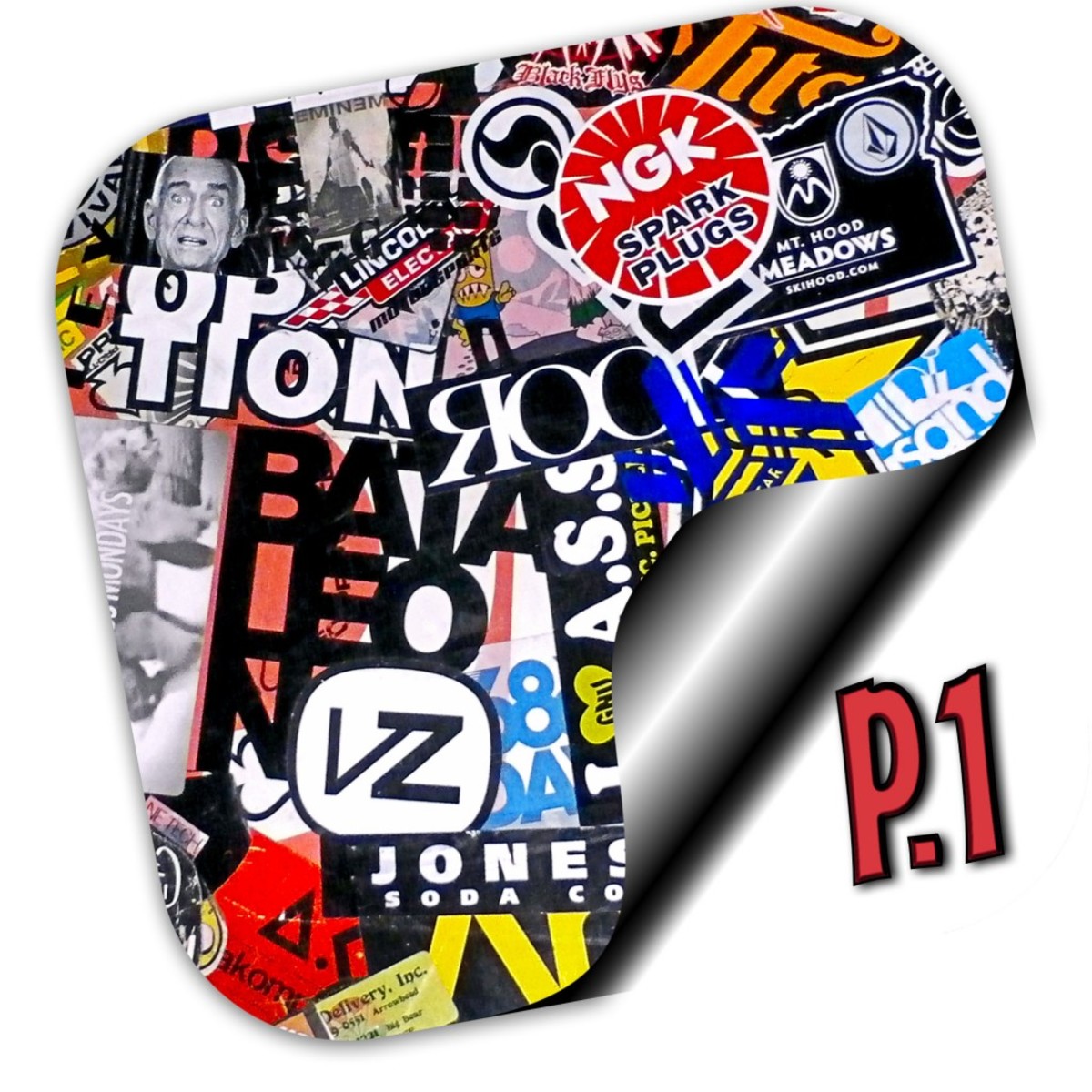Surviving a Financial Cutback
Recognizing the Problem
We are living in a day where unemployment is at an extreme high. However, what these numbers don't reflect is the many Americans who still have their jobs but have had their days of work cutback or their rate of pay reduced. I personally know two individuals in these conditions. The one has had their monthly salary reduced $600 per month and the other has had one day a week taken off their schedule.
How does one survive financially when things like this occur? There are actually some simple steps that can be taken to ensure your solvency, which I would like to address in this Hub.
Let's first look at the human nature side of the equation. We all like to "feel good" and what typically happens when the events surrounding our life are negative is that we look for a "feel good" activity to sooth our pain.
Unfortunately, this is one of the major problems with obesity in America. Eating is comforting. It is also one of the reason why Americans carry so much debt. Spending is comforting. However, when it comes to our financial survival simple math will always rule. Four minus two is always two no matter how you feel. Therefore, if you really want to stay afloat financially you are going to have to do some things that go contrary to how you feel at the moment.
Therefore, step number one is to recognize the problem. When I say recognize the problem you have dig a little deeper then realizing that your pay has been cut by 10%. That's the easy part. What I mean by this is that you have to translate that information into real terms according to your life. If you are living paycheck to paycheck you have to come to terms that it won't work this month. If you are putting 10% of your income into savings and the rest is going toward your living then you are going to have to realize that you are still living paycheck to paycheck (although in a better way) and that something needs to adjust.
Blindness to reality is the first killer to financial security. Avoid the terms "everything will work out" because the reality is if something does not change then it is not going to work out. Four minus two is two not four. The numbers have changed and you have to be aware of that fact. It is critical at this point that you don't yield to the feel good solutions as this will only increase your expenses at the critical point of decreased income.

Speed is Essential
Step number two is something that few ever thing about and that is "speed." During times of financial cutbacks speed is essential. Think about this for a moment. When you are told that your pay has been cut, your job eliminated, or your hours cut back it is not a six month process. It is typically something like, "starting Monday."
The cutback is an almost immediate (and in some cases immediate) course of action. However, many people respond to this with a "let's see what will happen" attitude. Therefore, while the cut back is immediate the action of response is not. This gap creates additional shortages that are very hard to recover.
Using some simple math we can see the dilemma that a person is in when a cutback occurs. If you have $100.00 and receive a 50% cut (now having $50), in order to get back to your original $100 you now need a 100% increase ($50 must increase by 100% or $50 to get back to $100).
How do we make speed work for us? When the news of a cutback or layoff occurs we need to jump into action that night. We need to get our plan of attack going. We need to prepare for the worse and hope for the best. The key here is preparing for the worse. Preparing does not mean "think about" it means to prepare. When you prepare a meal there is food on the counter, things are getting chopped, and in a bit there will be a meal ready to eat.
Speed is essential and we must put time to work on our side. We have now recognized the problem and how it will affect our lives and we have jumped into action putting a plan of attack together. Let's now look at an action plan.
Plan of Action
The reason why most will not put time on their side is because they do not like this step, which is a plan of action. We are talking about a cutback in income therefore it is obvious that our action plan is not a plan of increase, vacations, or new clothes. This is the hard part of life, but it is not as hard as what we will face if we don't plan.
Again, simple math comes into play. You don't have to be a mathematician to get your action plan together. In all of our households there are two forces working, which are income and outgo. These two forces are the balancing acts of life. We have to bring them into balance with the new information we have just received -- a pay cut.
It really doesn't matter which side of the equation you want to focus on because both can solve our problem. The important thing to remember is that there is a personal cost on both sides of the equation. If we are going to find a way to replace the reduced income it is going to cost us time and if we are going to cut expenses it is going to cost us things that we enjoy. This is the hard part of life, but it is a part of life.
Increasing Income:
This is a priority if your position has been cut or your employer is closing. Some think they will just collect unemployment, have some time off, and then look for a job later. This is a major mistake. While I would recommend filing for unemployment as soon as your qualify, I would look at this as a back up plan not as a plan in and of itself.
There are a few things that happen when a person loses a job. It does something to us emotionally and the longer we sit the more prone we are to sitting. This also works against us in finding a job. The longer we are unemployed the harder it is to gain employment. This is where speed is very critical. If you are going to focus on replacing your cutback or you need to find a job then you need to start yesterday!
I am writing this Hub in November so let's say that your employer tells you that your position is going to be eliminated at the end of the year. You don't want to wait until the end of the year to find a job, you want to find a job now. People respond with things like, "but they need me in my position till the end of the year." My answer to that is, "So what! You have a life and bills that will go beyond December they don't." You did not create the problem, but the answer certainly does fall into your lap. If you can find a job now then you can make the transition without any decrease income. Speed is essential!
The same is true with cutbacks. If you are going to get a part-time job or try and take a hobby and turn it into a money making venture don't wait until the cutback occurs start preparing now. The worst thing that can happen is that you start making money before the cutback takes place, which would be a great problem to have. However, what's more likely is that you will reduce the time of having reduced income. This may save your home or your car.
Starting Businesses:
I am all for entrepreneurship, however there is an old saying that goes like this, "it takes money to make money." You must be very careful that you don't try and start something that is going to be heavy on the capitalization side. In addition, you don't want to "try" something new. It is not the time to join your cousin's MLM if you have no experience in it. This is the time to make sure what you are going to do works because your financial life is in jeopardy.
Cutting Expenses:
Here's the part everyone hates, but is really the easiest of all. If you, like my friend, have a $600.00 wage decrease then you can easily bring your financial life in balance by cutting $600 per month.
The first thing you want to do is make a list of all your expenditures. Everything! I remember one time I sat down with a couple who was having difficulty making it. Their income was good, but they were going behind. I asked for all their bills. Once I gathered them they had an exorbitant amount of money left over. I knew I didn't have all the bills. One thing I asked was their "eating out" costs. Their answer was $25-$35 per month. They said, "We don't eat out but maybe once a month." Well, as it turned out one of them "grabbed lunch" every day, but didn't view that as eating out because it was only $3 or $4 a day. Once we started digging we found out that there were many expenses that they did not account for like over $100 per month at Blockbuster.
So, when I say that you must list all your expenses -- list all your expenses. Most people will find that they can easily cut a couple of hundred dollars in non-essentials. Things like Starbucks, renting movies, ice cream, and so forth. Go through your grocery bills and take out the luxury junk food, start making your own coffee, and play a board game instead of watching a movie. Not only will you find that these things are non-essentials but getting rid of them may improve your life.
If you can't cut the needed amount from non-essentials then look at the next level of non-essentials. Things in this category would be cable TV, the internet, cell phones, hobbies, the gym, and so forth. While I realize that all these things make up the life we now enjoy they are not essential to our life like food, heat, and shelter.
If you are still unable to bring the shortfall into balance then look at downsizing your car or selling an "extra" that you may have like a boat, motorcycle, or RV. Things that are "extras" and not your primary source of transportation. You may need to cut back your primary source of transportation by going from two cars to one. While it is inconvenient it is cheaper especially if your cars have payments on them.
What most don't realize is that all of the things I have mentioned can be re-obtained at a moments notice. It takes no time to turn the cable back on, get a cell phone, stop in at Starbucks or rent a movie. In fact, getting a car is a pretty easy thing to do also. Many struggle with letting these things go when it is so easy to get them back. This is not a forever cutback it is a restructure to keep yourself afloat.
The faster you respond and the more clear your plan of staying afloat is, the faster you will recover and get everything back. Being blind and thinking everything will work out is a plan for disaster that will only lead to a longer recovery time.








